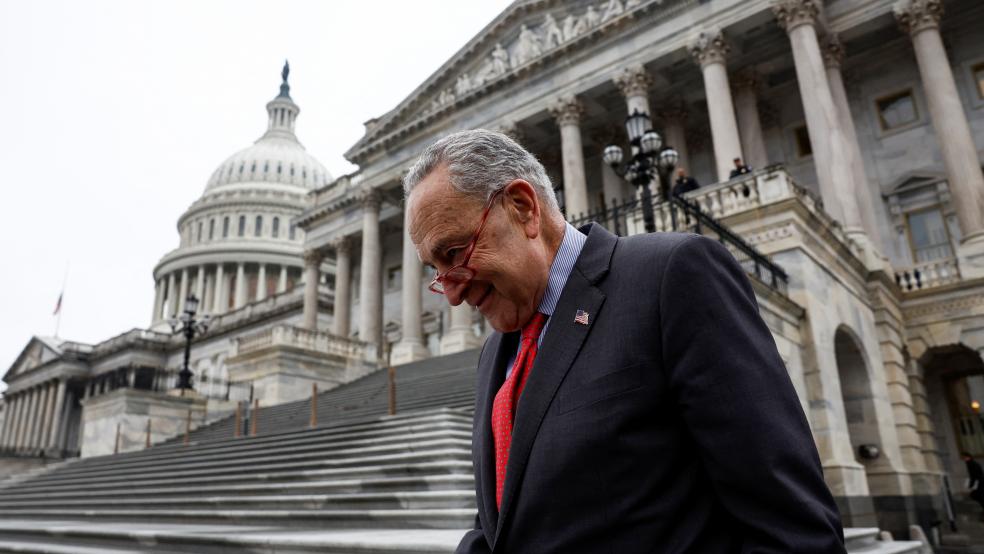Government funding expires Friday and appropriators working toward a full-year spending bill reportedly remain billions of dollars apart on non-defense spending for 2023.
The two sides have agreed to about $858 billion in defense spending, a boost of roughly 10% over 2022 levels. And negotiators have apparently made some progress toward an omnibus spending package — enough, at least, for Democrats to hold off on plans to unveil their own version of the legislation and a fallback full-year stopgap funding measure.
Extending the deadline: Still, with little to no chance of having the full-year spending package done in time, Senate Majority Leader Chuck Schumer (D-NY) said Monday that Senators should be prepared to vote this week on a one-week funding extension, known as a continuing resolution, to keep the government open and buy negotiators more time. That stopgap has been widely expected.
“Both sides are moving forward in good faith to make a deal, even if it’s not going to be everything both sides want,” Schumer said, adding that neither side wants a shutdown.
Some Republicans have urged their party to hold off on a full-year funding package and press for a longer stopgap that extends into the new year, when they will control the House. “As much as I hate the dysfunction a Continuing Resolution represents, a massive Omnibus would be worse,” Sen. Ron Johnson (R-WI) tweeted on Friday. “Let’s pass a CR that will allow a Republican House to pass a more fiscally responsible spending bill early next year.”
A full-year CR reportedly also remains a fallback option. The Biden administration has also submitted a list of "anomalies", or funding adjustments to provide more for homeland security and other programs above what the CR might otherwise provide. And while the Pentagon and member of both parties have warned against a full-year CR, such a package could now include “a twist that could make it more palatable” to lawmakers, as Roll Call described it: The legislation “would contain lawmakers' earmarks secured in earlier versions of the fiscal 2023 appropriations bills.”
Child tax credit and business breaks still up in the air: Lawmakers are looking at attaching a variety of other legislation to the year-end spending bill, including the renewal of an expanded Child Tax Credit and a host of business tax breaks. The White House has reportedly indicated that it would support a compromise deal to revive the expanded Child Tax Credit that expired at the end of last year — even if that deal included work requirements that it had previously opposed, Politico’s Adam Cancryn reports. “With time running out to resuscitate the program before Republicans take over the House, White House officials have urged lawmakers in recent weeks to pursue any deal they can get,” Cancryn writes.
Democrats are pushing for the tax credit as part of a deal that would also include business tax breaks that Republicans want. But with time running short and the spending topline still unsettled, the prospects for such a deal may be fading.
“Barring a last-minute breakthrough,” The Wall Street Journal’s Richard Rubin says, “many businesses will face higher taxes because of changes to how they can deduct research costs and interest expenses. For families, the child tax credit would remain at its current levels, without reinstating temporary expansions that Democrats implemented in 2021.”





